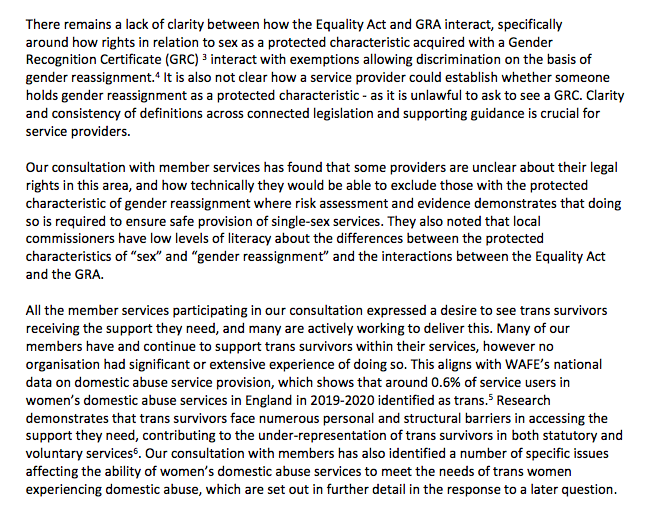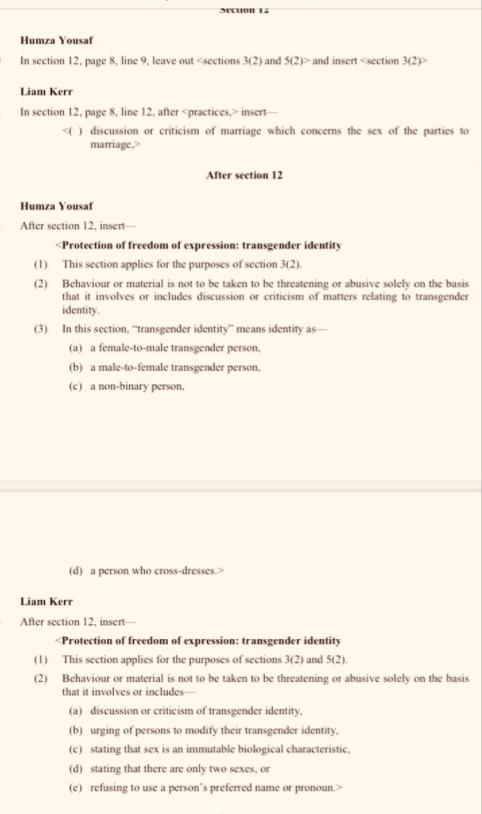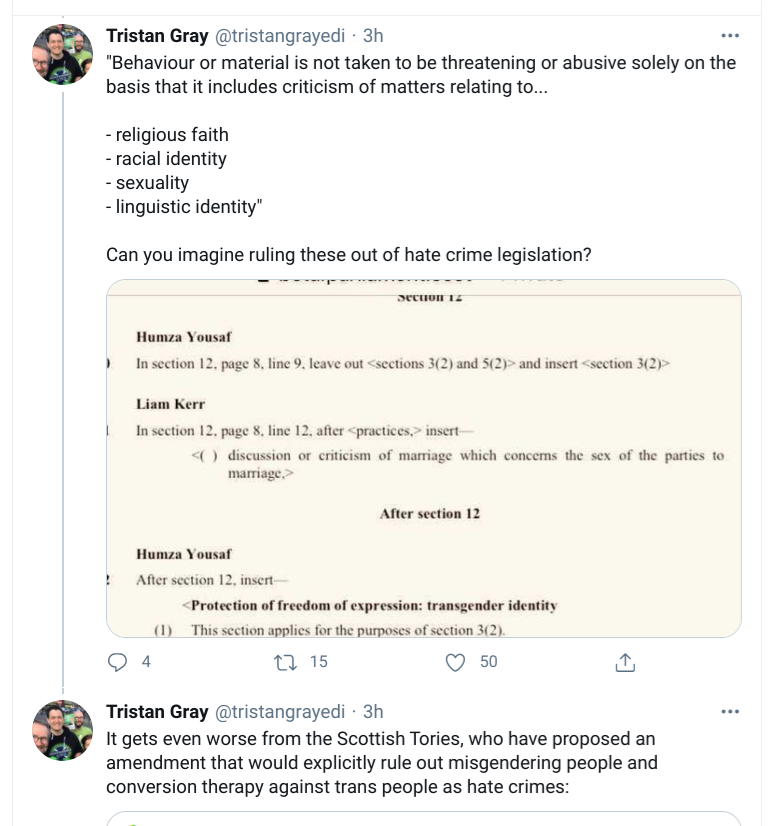EVERYTHING you could possibly get wrong in a complaint, they managed

Start with the plaintiffs. The ONLY claims in the lawsuit are that the Constitution gives state legislatures the right to set the manner of elections, which they have allegedly (we'll get to this insanity) failed to do.
There's oodles of caselaw saying "since that's a right of the state legislature, only state legislatures, as a body, can bring such a claim"
Are the plaintiffs state legislatures?
https://t.co/KJGEvm8Owp

OK, what about the Defendants? They've sued Defendants from, IIRC, five states (GA, PA, WI, MI, AZ) based on claims that the State Legislatures there didn't pass election rules that the plaintiffs insist the Constitution requires (I promise, we'll get there).
The 'Freeports' in at least 10 locations in Britain will evolve into Charter Cities with their own laws. They will NOT be legally bound to ANY of the trade agreements between the UK and EU or any other country. They will be used to bypass all International scrutiny
'Sovereign UK' makes deal with Charter city (physically but NOT legally part of the UK) which then trades to other countries OUTSIDE of the constraints of International laws
Thus bypassing all restrictions , tariff, tax, human rights, climate change legislation - everything
https://t.co/f35zFvkCHQ
Honest Q: Some people argue in good faith that an impeachment trial after POTUS leaves office is unconstitutional. I think they\u2019re wrong. But let\u2019s say they\u2019re right, yet senate does it anyway. Does anyone seriously think SCOTUS reverses verdict (or even can)?
— Jonah Goldberg (@JonahDispatch) January 17, 2021
Suppose Senate convicts and disqualifies Trump from ever holding federal office. Trump files paperwork to run anyway, but state officials deny his application, citing his Senate impeachment judgment. Trump sues, arguing that the judgment is void.
Normally a legal dispute about a prospective candidates eligibility to run would certainly present a justiciable case or controversy. But are courts bound to accept the Senate impeachment judgment as valid? Maybe not. Here’s why:
According to Article I, “The Senate shall have the sole Power to try all Impeachments.” This is a small amount of judicial power vested in Congress. When trying impeachments, the Senate sits as a court.
The Senate’s judicial power includes the power to decide relevant legal questions that arise, such as what procedures are sufficient to constitute a “trial” w/in the Constitution’s meaning. Such legal determinations are conclusive, as SCOTUS held in Nixon v. United States (1993).
And as a former EMT let me tell you, you will find dropout cops in training classes that just want power over people - difference is our system has CONSEQUENCES for negligence and malpractice. We get the same chuds every now and then but they still have to help or else.
— Love Potion No. Nines (@NineJackals) January 29, 2021
The idea that we can "disbar" lawyers but not police is absolute foolishness.
All the factors that make disbarment a necessary tool for lawyers apply to cops... except that cops don't need to be qualified in the first place.
It is a rank absurdity of the criminal justice system that one needs to be educated and certified with a degree in order to argue on behalf of someone's life in court, but to have no qualifications necessary to detain, assault, or prematurely end that same life.
There are countless circumstances in which a lawyer's unethical behavior will result in them not only losing their job but never being able to practice it again.
But corrupt and murderous cops can be rehired indefinitely.
A lawyer's entire career can be ended forever if they were found to have knowingly put someone on a stand to lie.
Police officers however are allowed to lie in court on the stand under oath.
So much that lawyers aren't penalized for putting cops on the stand to lie.
Trump has upended the traditional criteria for clemency: https://t.co/HkOXJwY4G7. The traditional guiding principle: “a pardon is granted on the basis of the petitioner's demonstrated good conduct for a substantial period of time after conviction and service of sentence.”
Request for pardon presumptively must wait 5 years after conviction or release. Traditional criteria include superlative post-conviction conduct & character; acceptance of responsibility & remorse; and hesitation to pardon serious offenses (violent crime, white collar fraud, etc)
V few of Trump’s clemency decisions meet these criteria. His pardons usually based on insider contacts, & are for v serious crimes that often dont satisfy 5-year rule, usually for people who do not express remorse. They almost always serve Trump’s personal or political interests.
As I told WP: “Other presidents have occasionally issued abusive, self-serving pardons based on insider connections. Almost all of Trump’s pardons fit that pattern. What other presidents did exceptionally, Trump does as a matter of course.”
And I have thoughts (MY OWN). So, I’m sorry ... a thread 1/25
One of the main reasons I think users are best served by a recognition that social media services have 1st Amendment rights to curate the content on their sites is because many users want filtered content, either by topic, or by behavior, or other. 2/
So online services should have the right to do this filtering, and to give their users the tools to do so too. For more detail see our Prager U amicus brief https://t.co/73PswB9Q7Q 3/
So, I disagree with my friends (and others) who say that every online service should apply First Amendment rules, even though they cannot be required to do so. There are both practical and policy reasons why I don’t like this. 4/
Most obviously, the 1st Amendment reflects only one national legal system when this is inherently an international issue. So it’s politically messy, even if you think a 1st Amendment-based policy will be most speech-protective (though probably only non-sexual speakers). 5/
New out 🤯 A review which says lots about the academic context in which it was written - with its embedded behaviorist fixations on just implementing *better* - with complete disregard for the unintended consequences of treating "agency" as a dirty word
In all #becausehuman fields, we see justifiable professional kick-back at reductionist agendas driven by a focus on #obesity & nonsensical CMO guidance of 60 min of moderate-to-vigorous physical activity (MVPA) per day for healthy growth and development
If we're going to "Bring the Early Years Expert out of the Shadows" we might start by linking #ECSDNConference2021 practitioners with @greg_dryer / @meaningfulPE in critique of the nonsensical CMO "60 minute" guidelines. PLEASE review @fhcappg session \U0001f447https://t.co/CFC61gNrsG https://t.co/I2mO6BwcZ0 pic.twitter.com/KFC65fSKco
— Greg Spencer (@SingleBlade1) January 22, 2021
What's fundamentally missing is not just a respect for complexity. It's respect for Homo-Narrans - for the ordinary, everyday story-telling folk all around us whose aspirations & dispositions provide the context in which we find meaning, purpose & value
We don't need spurious arguments against initiatives... but let's consider ethics & unintended consequences - on which, see @snowded (especially around epistemic justice) #becausehuman
https://t.co/gu97xDEamB
https://t.co/E1GzCdCfLA
https://t.co/bKowDAgARQ
https://t.co/evzYMBPwvZ

Our Social Media Discussions are Back!
— Kenna Partners (@Kenna_Partners) January 13, 2021
Today our topic is: Digital Identity and the Law
Join the Conversation on Twitter by 5PM! pic.twitter.com/TbbqMMQbLc
Good evening everyone! Welcome to the Year 2021 and the first KP Social Media Discussion of the year. Today we are gonna discuss the concept of digital identity and the legal issues it raises.
It is not news that the fourth industrial revolution has led to many novel innovations on how everyone lives their lives.
Most operations in life can now be done digitally since the rise of the digital age and social networking, and since the Corona Virus mandated lockdowns most social interactions from work to school to parties, weddings and funerals are done digitally.
In Nigeria, there is a ramped up pressure to create a digital profile for every Nigerian through the National Identity Card Scheme which is now operated by the Federal Ministry of Communications and Digital Economy.
Judge Paula Grey is president of the Gender Recognition Panel
She doesn't make any recommendations, but she sets out how the process currently works
Which chimes with my analysis of the GRP User Panel and statistics https://t.co/XixEz7lNJv
She is also co-author if the Equal Treatment Bench Book and writes about how the judges are trained by Gendered Intelligence

There is the government's own response
https://t.co/bOn9XecAkz
On single sex spaces they say the law is clear that service providers are able to restrict access to spaces on the basis of biological sex where there is clear justification.

The response from @womensaid is significant.
Their members want trans survivors to get support they need but not by undermining their ability to serve women with female staff & female only services
They highlight lack of clarity
https://t.co/p7096sZcos

This was their position in 2015
They have moved on alot - they have been consulting with members since last year, and have had the courage to say what their members told them, not what Stonewall wanted to
























